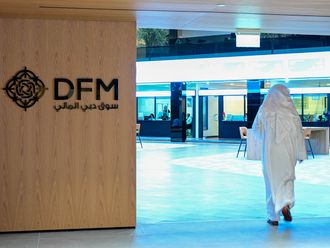The UAE has an impressive record in terms of initiatives to bridge the gender gap in employment and professional development compared to other Gulf countries. Some of the country’s women CEOs and managers have had dazzling achievements to their credit and ensured their organisations made great strides.
Dubai Shopping Festival is perhaps the most shining example of women empowerment in the UAE. The success of DSF to promote Dubai’s global appeal as a tourism and shopping destination has won wholesome praise and prompted the creation of the bigger Dubai Festivals and Retail Establishment within the Department of Tourism and Commerce Marketing under Laila Suhail, CEO.
It is a showpiece achievement that some of the best-run establishments in the UAE’s public sector, such as free zone corporations, government departments and corporate entities are headed by women. Out of the four new chief executives recently announced for Dubai’s government hospitals, three were women.
Against the backdrop of the ascendant woman power in corporate and government leadership, findings of a survey sponsored by a Mubadala company make fascinating reading. The survey, undertaken by Economist Intelligence Unit, explored the trends among female students expected to shape the next level of UAE’s economic development.
The survey showed the country’s female students were outperforming their male counterparts, with educators interviewed for the report describing the former as being more dedicated and determined.
For instance, girls in Grade 4 outperformed boys in reading, science and maths, as per the ‘Trends in International Mathematics and Science Study’, an international assessment of the mathematics and science knowledge of 4th and 8th graders. By the age of 15, females considerably outperformed males in all domains, although the gap narrowed in mathematics, according to the Programme for International Student Assessment by the Organisation for Economic Co-operation and Development (OECD).
This continued at the university level, with females accounting for 62 per cent of all graduates in the academic year 2011-12. In government universities, this figure jumped to 71 per cent. In science, technology, engineering and maths (STEM) related courses, female graduates constituted more than half across all institutions, and 56.8 per cent in government universities. Interestingly, in all areas except engineering, women are graduating in higher numbers than men.
The study concludes that the Emirati women have reversed the gender gap in education and are now outperforming their male counterparts, including in STEM courses. In the labour market, females have also made impressive progress over the last 20 years, although participation remains low by global standards.
Interesting insight
Another interesting insight provided by the study is that female STEM students view education as more than a means to make money. They see potential careers in these fields as prestigious, interesting and, although not only attracted by money, they recognise the remuneration as rewarding. Beyond this, they also see their career as a way to give back to the country by contributing in areas that are important to the nation’s development.
But there are issues of perception that need to be addressed. The idea that areas such as engineering are for men only is changing rapidly in the UAE, but respondents were quite conscious of the fact that society still sees science and technology as a man’s domain and that the primary role of women is as the family care giver.
There are also two other significant issues at play, which apparently tilt the scale in favour of women. First, young men are more likely to study abroad than girls for cultural reasons.
Similarly, the study reflects a trend in which the share of nationals studying on government funded scholarships overseas is almost three-quarters in favour of male. The same bias exists in terms of well-paid positions in police and other similar employment opportunities.
— The writer is a senior journalist based in Dubai












